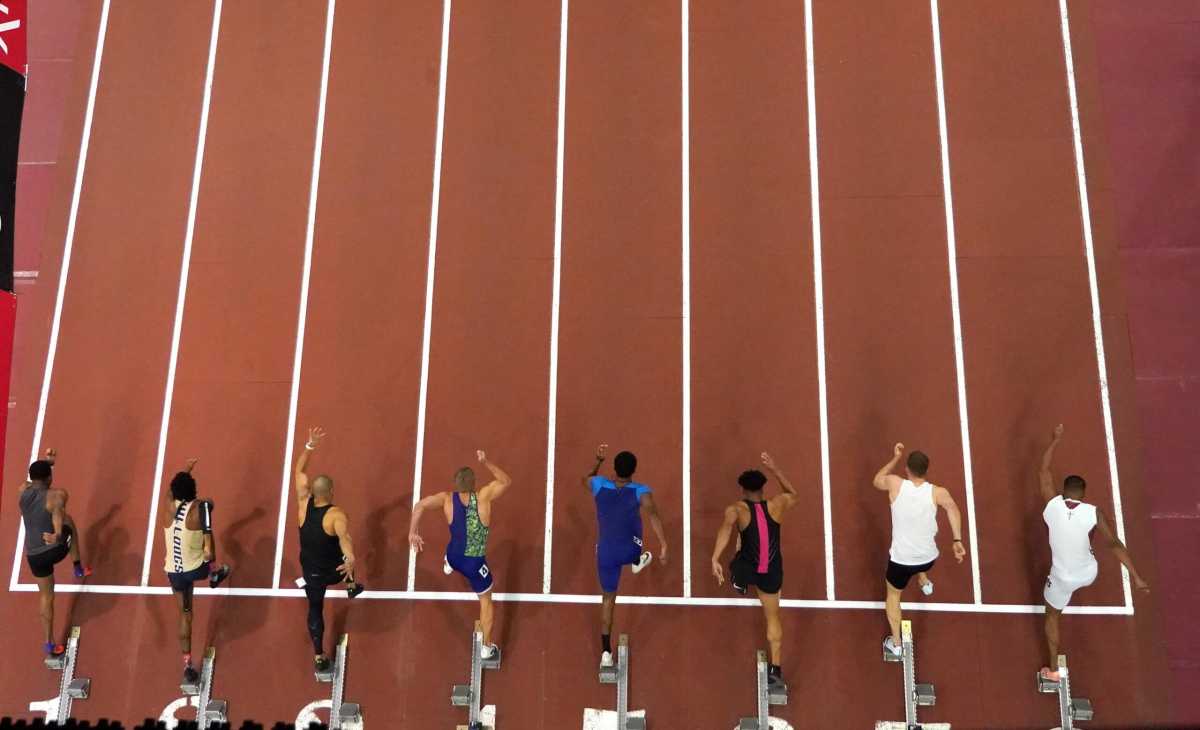A new report from the Center for American Progress (CAP) reaffirms what activists have said all along: Gender-affirming sports policies improve the lives of transgender students, while sports bans yield several harmful effects.
Trans-inclusive sports policies reduce the risk of poor mental health and suicide among transgender students, according to CAP’s “Fair Play” report, and there is no evidence to support that trans-affirming sports guidelines harm cisgender people. According to the Human Rights Campaign’s “Play to Win” report, 29 percent of LGBTQ youth who played a sport reported feeling less depressed than 21 percent of LGBTQ youth who did not play a sport.
Relatedly, the Trevor Project’s 2020 Survey on LGBTQ Youth Mental Health found that 12 percent of those who reported at least one in-person LGBTQ-affirming space attempted suicide in the past year compared to 20 percent of queer and trans youth lacking in-person LGBTQ-affirming spaces. Discriminatory policies compound the daily violence and scrutiny facing trans people, the report shows.
Transgender youth and young adults are already at a higher risk of depression, suicidal thoughts, and suicide attempts than their cisgender peers. This is not helped by anti-trans sports policies that create even more widespread hostility against trans kids, ranging from bullying and harassment to rejection from peers.
While in school environments, 49.9 percent of transgender youth have been bullied compared to 23 percent of their cisgender peers, according to the report. School sports can provide a protective layer against rampant discrimination — with many trans youth gaining social, physiological, physical, and emotional benefits. In fact, 43.6 percent of trans college athletes report improved psychological well-being when compared to 41.8 percent of trans non-athletes.
“In addition to physiological benefits such as lower rates of obesity, research has found that high school and college student-athletes may be at lower risk for anxiety and depression, suicide attempts, and tobacco and illegal drug use,” the report states.
These benefits can even seep into their safety on campus. Seventy-seven percent of trans athletes felt somewhat or very safe on campus compared to 70.7 percent of trans people who do not play sports. More than 60 percent of trans athletes felt like they belonged at their school compared to 59 percent of non-athletes.
“Transgender people — like all other people — belong in sports,” said the study’s author, Shoshana K. Goldberg, who is a researcher in LGBTQ health and policy. “Bans on their participation do nothing to ‘save sports. Instead, they serve to deny access to transgender youth, risking serious harm for transgender athletes and non-athletes alike.”
Goldberg added, “Exclusionary policies such as sports bans further legitimize transphobia and hate by sending the message that transgender youth are not welcome in spaces that are otherwise open to all other youth. And with already staggeringly high rates of suicidality among transgender youth, the continued rise of transgender sports bans may have life-threatening consequences.”
This report coincides with the circulation of anti-trans sports bills in statehouses across the country for yet another year. According to the report, 20 states introduced bills last year restricting or excluding transgender athletes from playing on a team that corresponds with their gender identity.
In 14 states, trans people are included in sports only if they prove their gender identity, medically transition, or undergo medical exams. These policies affect nearly 35,000 transgender high school students, the report shows. In Indiana, Kentucky, and Louisiana, trans athletes can participate only if they have undergone gender confirmation surgery. Several states have not authored legislation for or against trans people in sports.
“These policies not only send harmful messages that there is a single, ‘legitimate’ way to transition — namely, through surgery — but they also exclude those for whom surgical transition is not desired,” the report states. “As well as those for whom gender confirmation surgery is unavailable due to factors such as age (gender confirmation surgery is largely not performed on youth under age 18), cost, and/or lack of available providers.”
Lawmakers are garnering support for these policies by turning to outdated research and transphobic stereotypes.
“Such policies not only set arbitrary guidance around physical characteristics that ignore inherent variability in the bodies of athletes of the same sex, but they also further force transgender athletes to choose between playing a sport and living, and competing, authentically as their gender, as well as create hostile climates that contribute to the negative mental health outcomes detailed earlier in this report,” the study states.
According to the report, 16 states have authored policies supporting trans athletes regardless of the sex listed on their birth certificate or their sex assigned at birth. The researcher concluded pro-LGBTQ legislation could help fuel this progress.
Goldberg is advising Congress to pass the Equality Act, a federal bill amending Title VII of the 1964 Civil Rights Act to ban discrimination against LGBTQ people in housing, employment, healthcare, education, and other areas of public life. Furthermore, the expert notes that providing coaches and athletic staff training could help them navigate policies and provide an affirming environment.
She also recommends passing the Safe Schools Improvement Act (SSIA), a policy prohibiting bullying and harassment based on gender, race, class, and other marginalized identities. Under this measure, trans and non-binary students would be able to participate in sports that correspond with their gender identity.
“With already staggeringly high rates of suicidality among transgender youth, the continued rise of transgender sports bans may have disastrous, life-threatening consequences,” the report concludes. “Transgender youth should have the same opportunity as all youth to be part of a team and feel a sense of belonging. Rather than discriminating against students simply because they’re transgender, states should adopt inclusive sports policies that foster welcoming environments for transgender and non-binary youth and work to remove barriers and improve participation for all youth.”
To sign up for the Gay City News email newsletter, visit gaycitynews.com/newsletter.






































